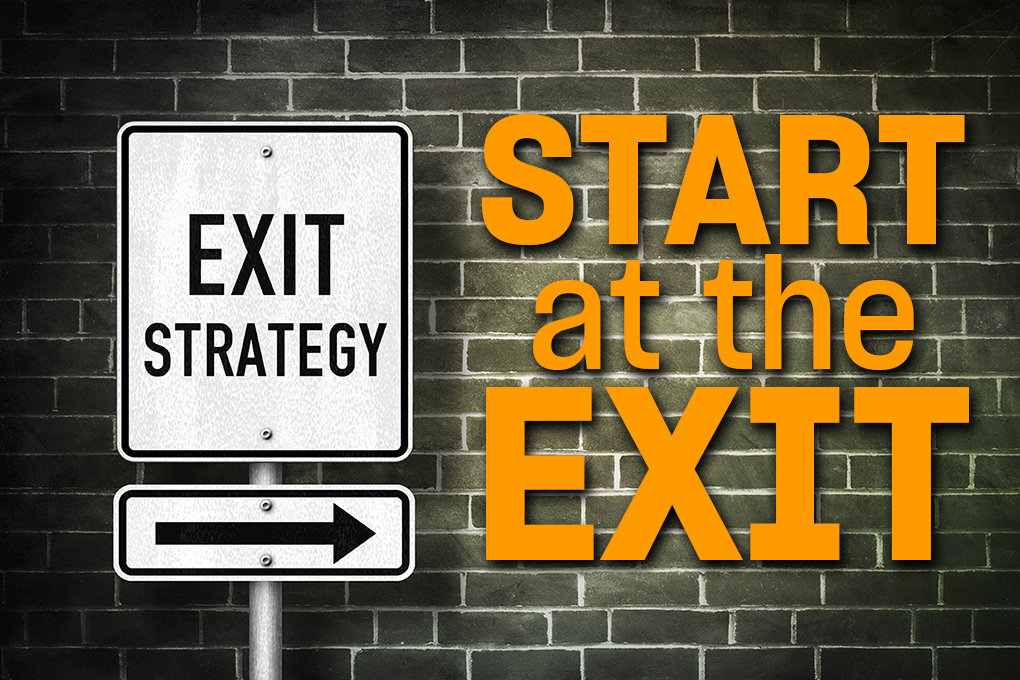If you are starting a business, it helps to know what your plan is. But what if you start with your exit in mind?
Starting a business always requires a plan. Over the past two years, millions have established new businesses. Many have started out of necessity after losing their jobs.
Most people starting a business build a plan that outlines where they want to be in the first year, second year and maybe the third year. After that, the future seems too distant and far away to outline.
What’s Your End Game?
The better option for business planning is to Start at the Exit. Start with your end game. What is the end goal for your business? Are you building a business to pay the bills? Leave a legacy? Create a certain standard of living?
These are important considerations that will help you understand your exit plan and will determine how you build your business.
In a previous article, I discussed the potential cage of a lifestyle business – a business where the goal is to provide money for the owner’s living expenses. For some, they know that this is what they want to do for as long as possible, and when they are done working, the business will end.
Family Legacy
Another possibility is that you are creating a family legacy through your business. In terms of planning and depending on where you are at in life, there can be several different viewpoints. Perhaps you are just now starting out with a partner with the intention of having your children eventually take over. If this is the case, you need to think about when to include them and in what roles. Detailed planning can come later, but at the very least you will need an outline to understand the process. You need to have contingency in the event that your children are uninterested in the business (or are not interested now but will be later). Other things like sibling rivalry and relevant qualifications should also be considered.
If your children are a part of the business from the beginning then you should start with them as partners. They should be involved in defining roles and responsibilities; and understanding how everyone will work together. You should outline ideas for succession and career paths as well as the transfer of ownership. Again, these may change over time, but if everyone knows where they fit in from the beginning, you can help avoid failure in the future.
Building to Sell
Another popular option is building to sell. If the desired exit is to sell your business to an outside entity you have to plan not only with economic growth in mind, but also the management structure, key qualified personnel that will stay with the business, strong customer and vendor relationships, and scalability.
Regardless of which business model you choose, thinking about the end game early will help you build a successful outcome.

